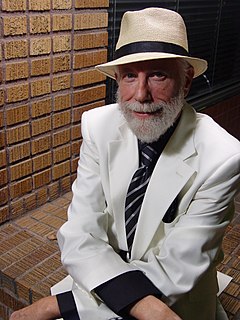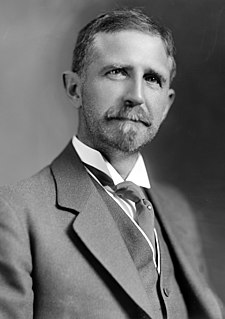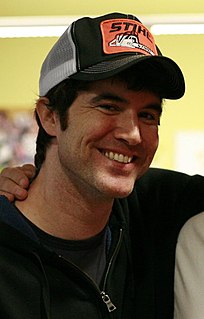A Quote by George Eliot
We are all humiliated by the sudden discovery of a fact which has existed very comfortably and perhaps been staring at us in private while we have been making up our world entirely without it.
Related Quotes
How few of us appreciate the fact that a very great deal of physical suffering in after life comes from bad mental training in childhood! I do not mean suffering of an imaginary kind; I mean disease which may entirely ruin a life which might have been of use to the world, and which surely would have been happier but for the lost health. Many a chronic invalid might have preserved his health had he been taught to use his brain properly when a child.
In a world that’s gone hellishly mad we’ve always taken comfort in the fact that the faith of our fathers is the one thing that remains solid and unchanging. It occurs to very few of us that perhaps for the last 2,500 years the faith of our fathers has been one of the main reasons why our world has gone hellishly mad.
One of the most unattractive human traits, and so easy to fall into, is resentment at the sudden shared popularity of a previously private pleasure. Which of us hasn't been annoyed when a band, writer, artist or television series that had been a minority interest of ours has suddenly achieved mainstream popularity? When it was at a cult level we moaned at the philistinism of a world that didn't appreciate it, and now that they do appreciate it we're all resentful and dog-in-the-manger about it.
The Internet is the hope of an integrated world without frontiers, a common world without controlling owners, a world of opportunities and equality. This is a utopia that we have been dreaming about and is a world in which each and every one of us are protagonists of a destiny that we have in our hands.
That this liberty [of the press] is often carried to excess; that it has sometimes degenerated into licentiousness, is seen and lamented, but the remedy has not yet been discovered. Perhaps it is an evil inseparable from the good with which it is allied; perhaps it is a shoot which cannot be stripped from the stalk without wounding vitally the plant from which it is torn. However desirable those measures might be which might correct without enslaving the press, they have never yet been devised in America.
For a hundred years or more the world, our world, has been dying. And not one man, in these last hundred years or so, has been crazy enough to put a bomb up the asshole of creation and set it off. The world is rotting away, dying piecemeal. But it needs the coup de grace, it needs to be blown to smithereens. Not one of us is intact, and yet we have in us all the continents and the seas between the continents and the birds of the air. We are going to put it down ? the evolution of this world which has died but which has not been buried.
Does anyone believe for one moment that the progress we have made would have been possible under bureaucratic control of any government. This country was founded upon the principle of the regulation of private effort, of making rules for the game, and under that system alone can we look for the same success in the future which has been ours in the past. Our position today is the direct result of the free play among our people of private competitive effort.
Newscorp has always been, for us, very easy to work with and they respect our opinions and let us run the site we wanted to. And, in fact, they wanted to keep us on. They weren't saying, hey, let's throw these guys out. They were buying into what MySpace was and the founders, and so it's been very good for me.
The media we surround ourselves with allows us to manufacture our own experience every day, which is a perception of the world that is our own invention entirely, whether it is on social media or what we choose to absorb. This was very different when I was a kid, like generations before us we were exposed to things that were not entirely on our terms. We had to wrestle with and find the relationship with the world around you. It was literal experience, unlike the form of protracted psychic masturbation that is the digital world we live in.
I stood there in the kitchen, watching her staring across the meadow still searching for her nemesis and I thought, suddenly, that this is all our lives - this is the one fact that applies to us all, that makes us what we are, our common mortality, our common humanity. One day someone is going to come and take us away: you don't need to have been a spy, I thought, to feel like this.






































